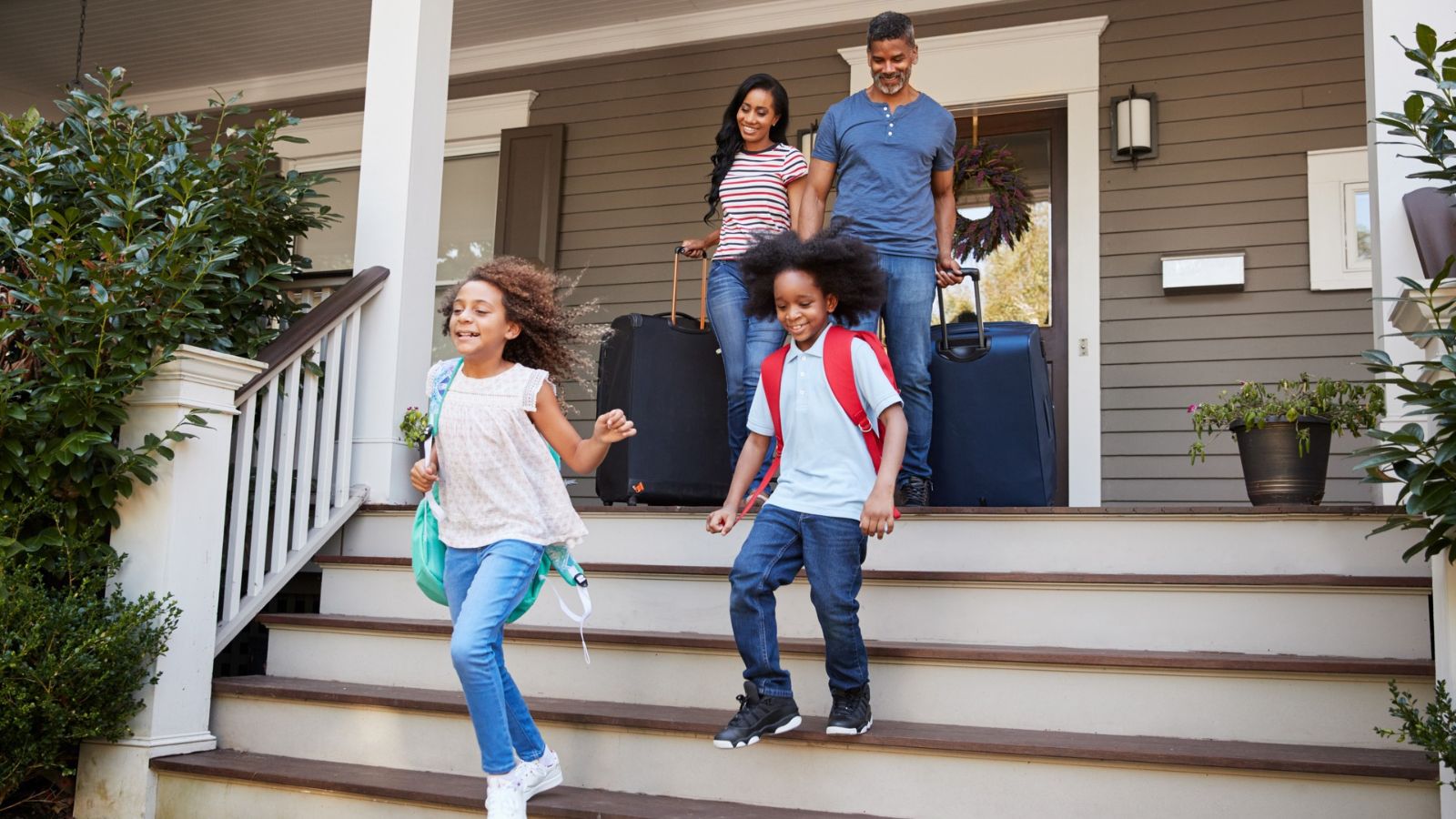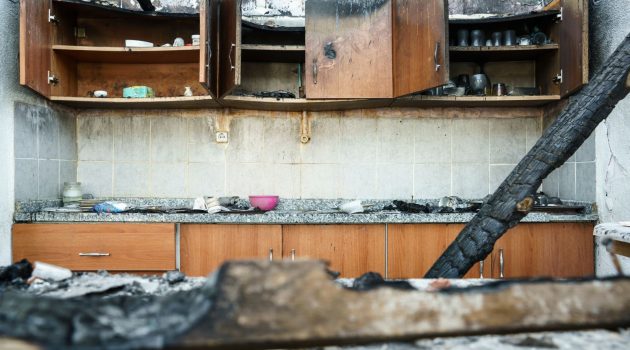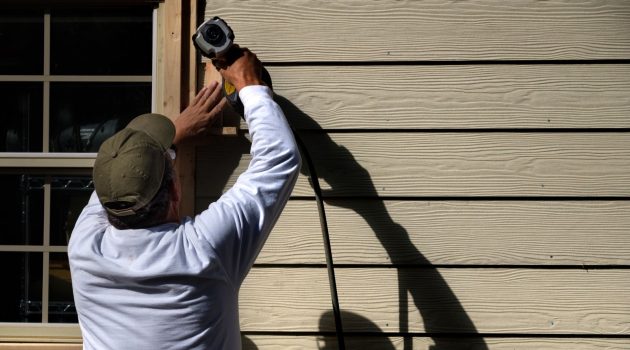Deciding to leave your home for an extended period, like 6 months, whether for a long trip, work commitment, or just for a change of scenery, requires careful planning to ensure everything remains secure and in good condition during your absence.
Achieving peace of mind while you’re away isn’t as complicated as it may seem.
With a few thoughtful steps, you’ll be able to leave your home knowing it’s as safeguarded and maintained as if you’d never left.
Main concerns when your house stands empty include potential security risks, the upkeep of your home systems, and managing your utilities and bills.
Having a checklist in place can greatly reduce the feeling of worry about the state of your home.
By addressing these areas systematically, you’ll make sure your house won’t face any unwanted surprises and will welcome you back just as you left it.
Maintaining a home that looks lived-in deters unwanted attention, so consider light timers, forwarding mail, and asking a neighbor to keep an eye on the place.
Adjusting your thermostat to avoid unnecessary heating or cooling expenses is wise, yet you’ll want to ensure the temperature is adequately managed to prevent damage to the interior from extreme temperatures.
From securing your property to ensuring your home’s plumbing and electrical systems are properly shut down or maintained, a little foresight goes a long way in making your return as smooth as possible.
1. Preparing Your Home
Before you embark on your six-month journey away from home, it’s vital to ensure your house remains secure, that utility management details are addressed, and that maintenance and cleaning have been taken care of to prevent any damage or deterioration.
Secure Your Home
Doors and Windows: Double-check that all doors and windows are locked and consider installing additional locks for added security.
It’s also sensible to invest in a home security system and notify your neighbors or a friend to keep a watchful eye on your home.
- Timers: Use timers for lights to simulate occupancy at irregular intervals.
- Smoke Detectors: Test and replace batteries in all smoke detectors to ensure they are operational.
Utilities Management
Water Supply:
- Main Valve: Turn off the main water supply to prevent leaks or burst pipes. If you have a sprinkler system or pool, consider consulting a professional on what valves need to remain open.
Water Heater: Set your water heater to vacation mode if available, or adjust the thermostat to a lower setting to conserve energy.
Thermostat:
- Furnace/Air Conditioner: Adjust your thermostat to protect your home from extreme temperatures. Around 55°F (13°C) in the winter prevents freezing, and 85°F (29°C) in summer prevents excess heat.
Electric and Gas:
- Ensure that all non-essential electrical appliances are unplugged.
- If applicable, turn off the gas supply to prevent leaks.
Appliances:
- Refrigerator/Freezer: Consider emptying and unplugging them if feasible. Otherwise, set to the optimal temperature to conserve energy.
- Washer/Dryer: Make sure they are empty and disconnected from power sources.
Housekeeping and Maintenance
Cleaning: Perform a deep clean before leaving—vacuum carpets, tidy up rooms, and clean out the garbage disposal.
Maintenance:
- Gutters: Clean the gutters to prevent water damage.
- Chimney: If you won’t be using it, ensure it’s clean to avoid pests and potential fire hazards.
Pest Control: Seal up any openings and consider a long-term pest prevention treatment to prevent unwelcome visitors.
Remember, your home will weather your absence much better when all precautionary measures are thoughtfully addressed. Happy travels!
2. Security Measures
When leaving your house vacant for an extended period, it’s crucial to implement security measures that deter theft and maintain the integrity of your home.
Alerting Authorities
You should inform your local police department that your home will be unoccupied for 6 months.
A simple alert can make it easier for law enforcement to keep an occasional eye on your property. In some areas, a patrol check by the police department might have a fee, so be sure to inquire about any costs involved.
Theft Prevention
- Monitored Alarm System: Install a system that provides round-the-clock surveillance and connects to a monitoring service. This can include door and window sensors and outdoor lights with motion sensors.
- Outdoor Lighting: Enhance your home’s security with outdoor lights that have motion sensors to detect any unexpected movement around the perimeter of your vacant house.
- Neighbor Assistance: Enlist the help of a trusted neighbor to keep an occasional watch, park their car in your driveway, and do regular check-ups. Having some activity around can be a strong deterrent against burglars.
- Secure Valuables: If you’re leaving valuables behind, ensure they are not visible from the outside and are stored securely, possibly in a safe or a bank safety deposit box.
Remember, solid security measures not only protect your physical property but can also provide peace of mind while you’re away.
3. Managing Subscriptions and Services
When leaving your house for an extended period, it’s essential to address your regular subscriptions and manage automated services to ensure everything remains in order, and unwanted deliveries or services don’t accumulate in your absence.
Mail and Deliveries
Dealing with Mail:
- Pause Newspaper Delivery: Contact your newspaper provider to hold the delivery until you return.
- Manage Mail Delivery: Forward your mail to a new address or ask the postal service for a temporary hold.
Handling Packages and Other Deliveries:
- Schedule Deliveries: Ensure no packages are scheduled to arrive. If you’re expecting any, redirect them to a friend or a package holding service.
Automated Systems
Managing Automatic Timers:
- Lights: Set timers to turn your lights on and off at specific times to give the appearance of someone being home.
Maintaining Online Presence:
- Social Media: If you usually post regularly, consider setting a hiatus note or using scheduling tools to manage your presence.
4. Departure Checklist
Before embarking on a long-term absence from your home, it’s essential to follow a structured departure checklist to ensure your home remains safe and maintained.
The checklist should address personal preparations and a final inspection of your home.
Personal Preparations
- Itinerary: Ensure you provide a copy of your travel itinerary to a trusted friend or neighbor. This way, someone knows your whereabouts and expected return date.
- Packing: Double-check that you’ve packed essentials, including credit cards, necessary documents, and appropriate clothing for your destination.
- Bills: Manage your bills by setting up automatic payments or paying them in advance to avoid missed payments.
- House Sitter: If possible, arrange for a house sitter or ask a neighbor to periodically check on your home. This can help deter thieves and address any issues that may arise during your absence.
Final Home Sweep
- Plants: Water your plants and, if possible, arrange for someone to take care of them regularly.
- Pets: Make arrangements for your pets to have a caretaker or a place to stay where they’ll be safe and comfortable.
- Perishable Food: Dispose of any perishable food that will expire before your return to prevent odors and pest issues.
- Trash and Recycling: Remove all trash and recycling from your home to avoid unpleasant smells and potential pest infestations.
- Winterize Your Home: If you’re leaving during colder months, winterize your home by setting your thermostat to a temperature that prevents pipes from freezing. Consider adding antifreeze to drains and toilets to prevent water damage.
- Vacuum: Do a thorough vacuum of your house to minimize dust accumulation.
- Water Damage: Check all taps and plumbing to ensure no leaks are present, and consider turning off your main water valve to prevent water damage.
- Unoccupied Property Precautions: Unplug unnecessary appliances, secure windows and doors, and activate any security systems to protect your unoccupied home.



